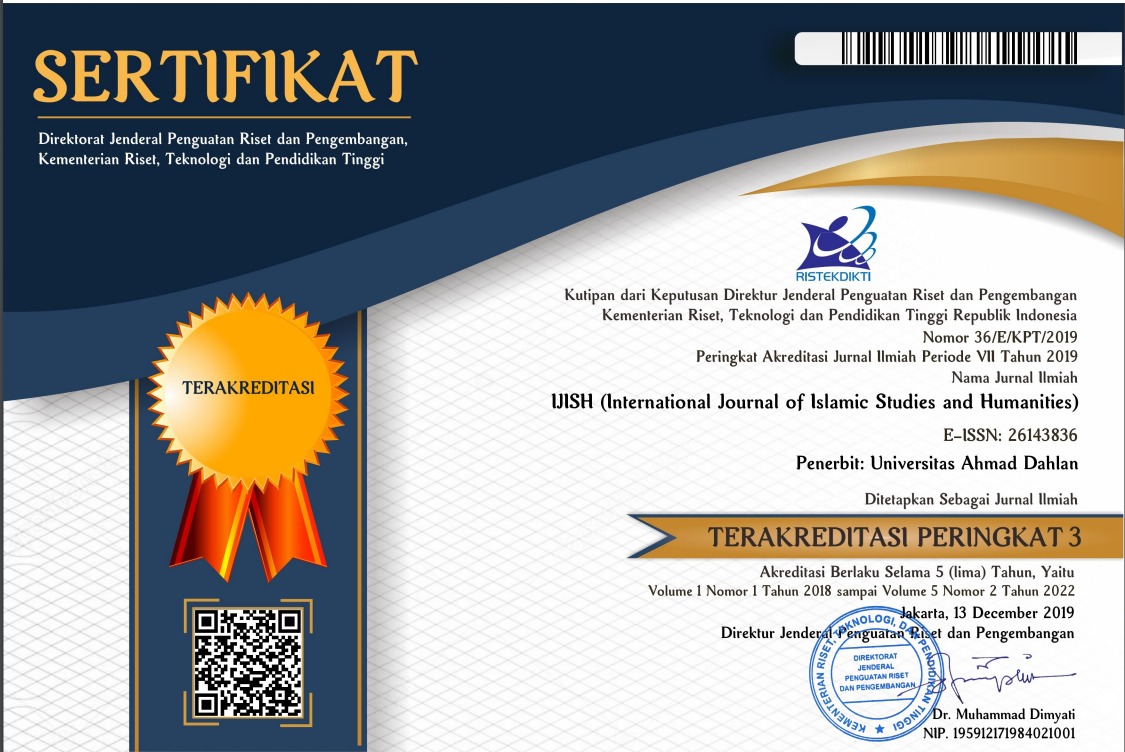Matn Criticism and its Role in The Evaluation of Hadith Authenticity
DOI:
https://doi.org/10.26555/ijish.v1i1.136Keywords:
Matn criticism, ‘ulūm al-ḥadīth, hadith authenticationAbstract
For centuries, Muslim community has taken ‘ulūm al-ḥadīth for granted as a valid method in hadith verification; if a hadith is declared as an authentic hadith after examined using the method, then they will accept the hadith as an authentic one. Nevertheless, the traditional discipline has been criticised by various modern scholars who argue that traditional ‘ulūm alḥadīth is not a sufficient method to evaluate the authenticity of hadith reports. One of their reasons is that the traditional hadith criticism only examines the chain of narrations (sanad) of hadith reports and ignores the content (matn) of the hadith. This essay will discuss the role of matn criticism in the authentication of hadith; whether it is included in the traditional method of ‘ulūm al-ḥadīth or not, and if so, what is the criteria and how the scholars apply them.Downloads
Published
2018-04-01
How to Cite
Ayub, A. (2018). Matn Criticism and its Role in The Evaluation of Hadith Authenticity. IJISH (International Journal of Islamic Studies and Humanities), 1(1), 69–75. https://doi.org/10.26555/ijish.v1i1.136
Issue
Section
Articles
License
Authors who publish with IJISH (International Journal of Islamic Studies and Humanities) agree to the following terms:
- Authors retain copyright and grant the journal right of first publication with the work simultaneously licensed under a Creative Commons Attribution License (CC BY-SA 4.0) that allows others to share the work with an acknowledgment of the work's authorship and initial publication in this journal.Â
- Authors are able to enter into separate, additional contractual arrangements for the non-exclusive distribution of the journal's published version of the work (e.g., post it to an institutional repository or publish it in a book), with an acknowledgment of its initial publication in this journal.
- Authors are permitted and encouraged to post their work online (e.g., in institutional repositories or on their website) prior to and during the submission process, as it can lead to productive exchanges, as well as earlier and greater citation of published work.

This work is licensed under a Creative Commons Attribution-ShareAlike 4.0 International License.






